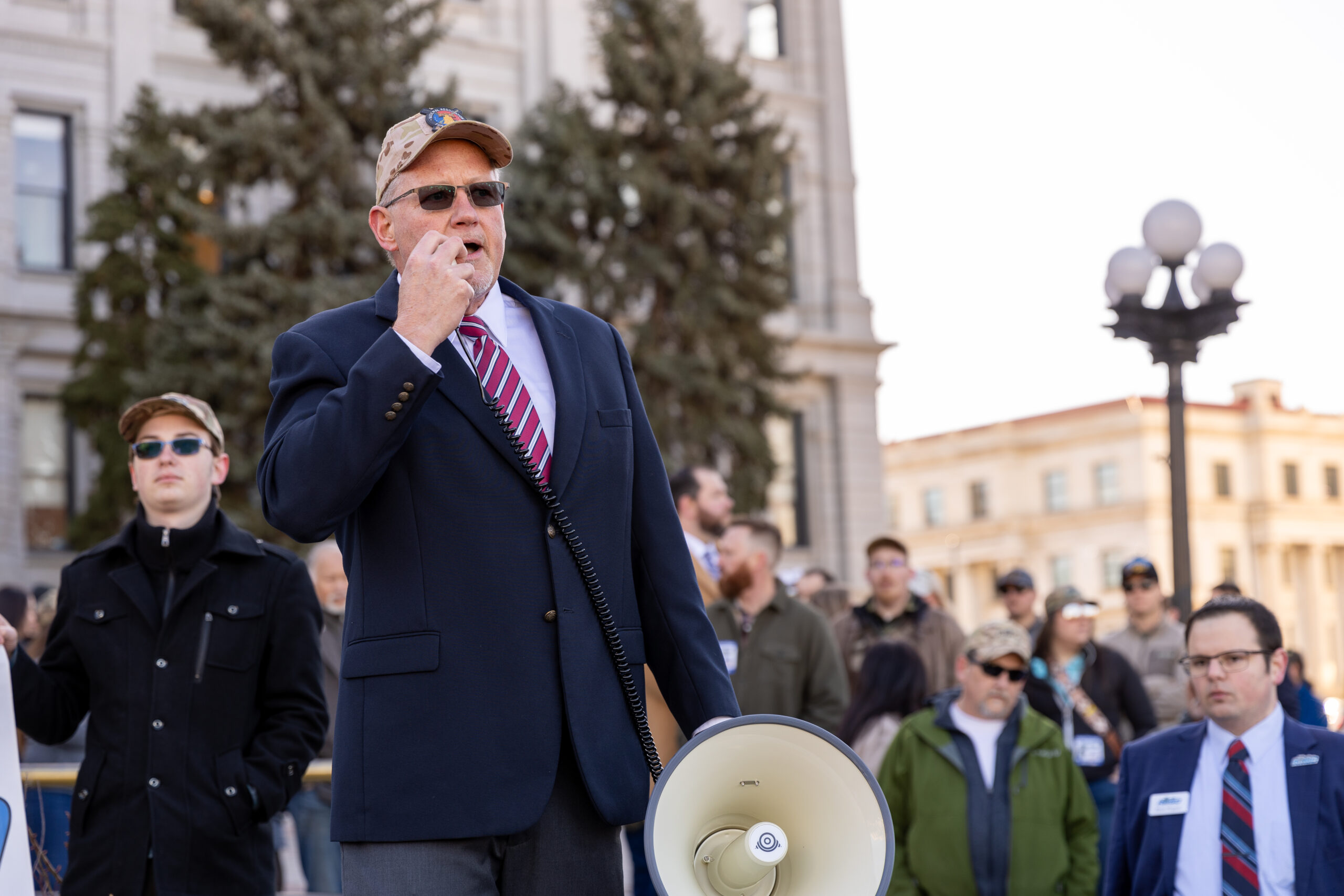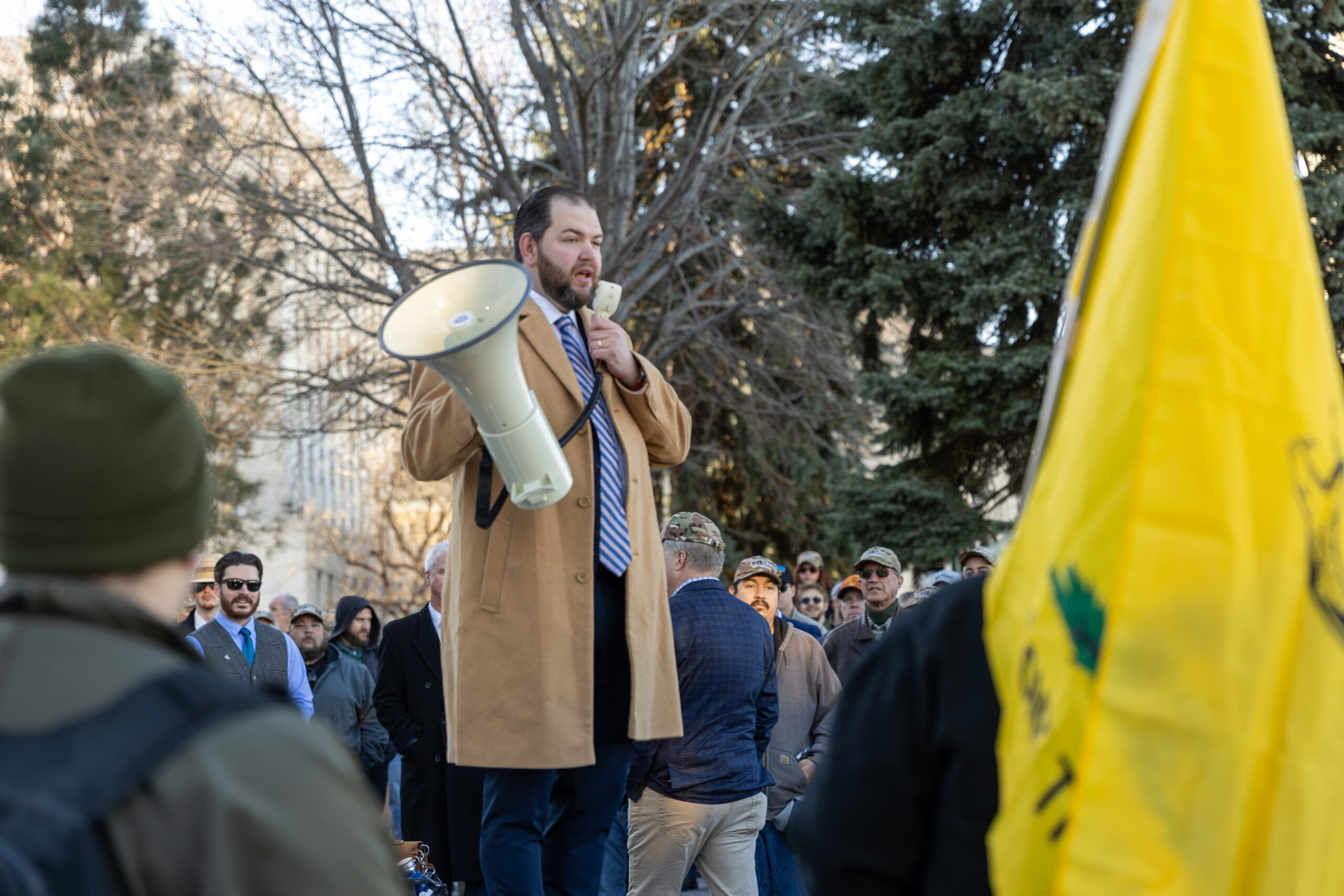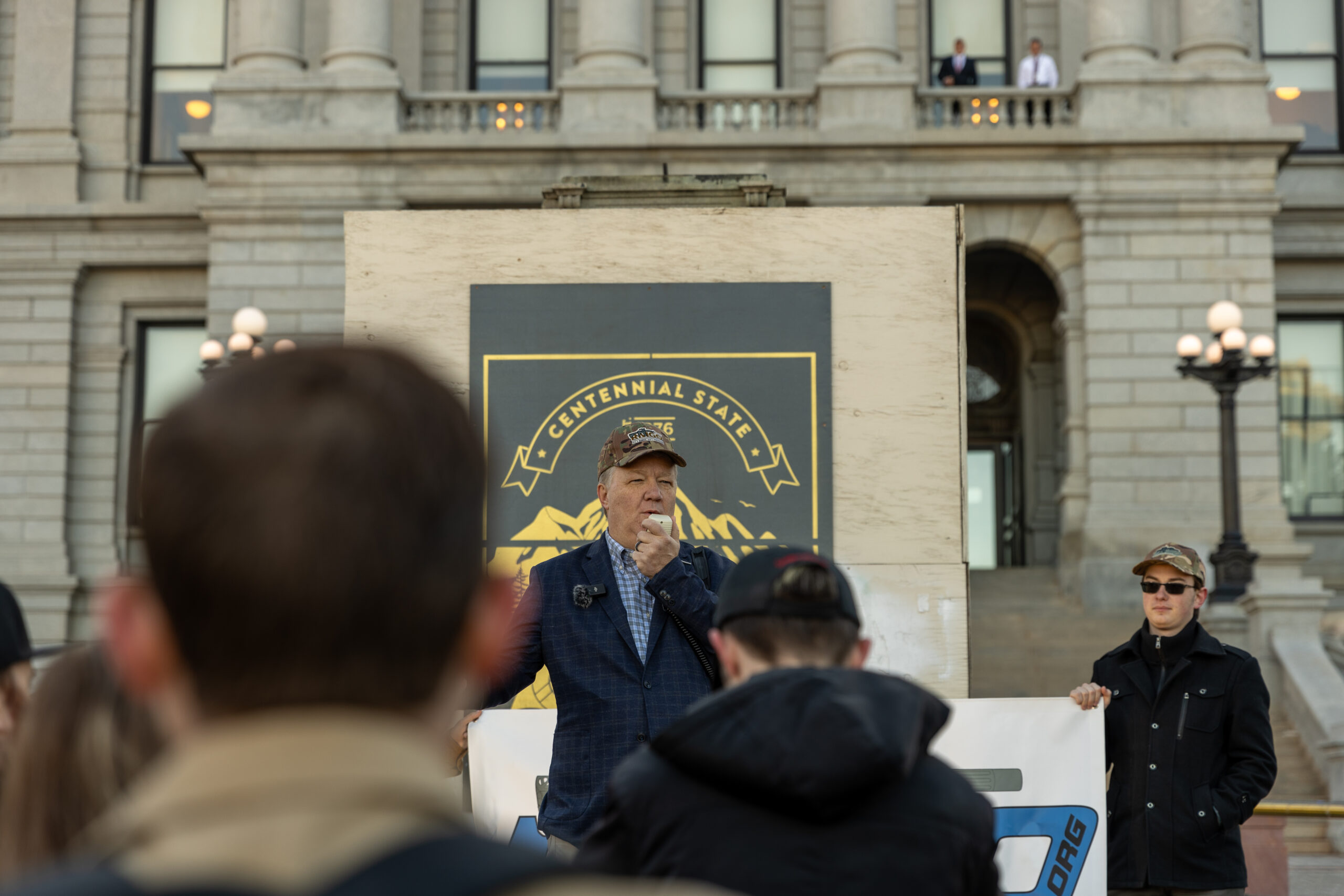NAGR Strategy
- Second Amendment Freedoms
- Meaningful Impact
- Personalized Support
- Confidential Guidance

NAGR STRATEGY
A Message From Our Founder, Mike Rothfeld
Fellow Patriot,
Few of the lectures I give on political technology and campaigning make people as agitated as this one.
None is more important.
Simply put, politics is not about the common good, appealing to men’s better angels, nor serving our Lord.
These may be your motivations. I pray they are mine. Occasionally, they will be a politician’s motivation.
Politics is the adjudication of power.
It is the process by which people everywhere determine who rules whom.
In America, through a brilliant system of rewards and punishments, checks and balances, and diffusion of authority, we have acquired a habit and history of politics mostly without violence and excessive corruption.
The good news for you and me is that the system works.
The bad news is it is hard, and sometimes unpleasant work, for us to succeed in enacting policy.
There is absolutely no reason for you to spend your time, talent, and money in politics except for this: if you do not, laws will be written and regulations enforced by folks with little or no interest in your well-being.
The following pages may challenge everything you thought you knew about politics, and everything you have been told about politics from your high school civics teacher to the lead editorial writer in your local paper to the politics “expert” at a respected organization.
But if you read carefully and understand, you will become capable of leading a successful fight for your values.
Please review details of the five key strategy topics by selecting a topic image. or click here to download and view a full printable version.
For more information, or to sign up for a class, click here.
For Freedom,

Mike Rothfeld is a political consultant with a national reputation for political confrontation and success. He teaches political tactics to activists and guides the formation and growth of many Liberty and Conservative organizations. He is the founder of the National Association for Gun Rights.
Politicians, Not Education and Not Public Opinion, Make Policy
THE FIRST MISTAKE
Misunderstanding The Target
The first mistake most folks make when they set out on a good-faith crusade is to completely misunderstand their targets.
Sometimes, activists make the local newspaper or media the target. The thinking goes, “If we can just get them to understand the problem, things will change.” It is fortunate that this is not correct, because the media in the U.S. is overwhelmingly committed to big government, gun control, and the supremacy of state-controlled education over parent controlled education.
The fact is newspapers cast no votes.
The national evening news controls no elections. If this were not true, Ronald Reagan would never have been President.

THE SECOND MISTAKE
Knowledge Will Make Things Right
An even more common mistake is to believe that the key to victory is education.
The “education is the key to political victory” theory claims that if we educate people as to the problem and the solution, then the elected officials will fall in line.
WRONG!
Polls show huge majorities of Americans are in favor of Parental Notification before a minor has an abortion. Yet the mere mention of the issue drives most politicians into fits of terror.
Similarly, 75% of Americans oppose forced-unionism and favor Right-to-Work, yet only 27 states have laws in support of this public opinion.
It is important to understand the two reasons why the education theory of politics is a mistake.
First, the theory assumes no opposing “education” effort. This is rarely the case.
Polls showed a majority in California favored education choice, yet the 1992 School Voucher Referendum lost 2-1 on election day. Why? Because the NEA-teachers’ union bosses and pro-government-school-monopoly forces out-organized school choice forces, had a more focused message, and spent a lot more money.
The second, and more important, reason the “education is the key” theory fails lies in the nature of politics and politicians.

Policy in the Margins: Why Grassroots Politics Works
It Is Proven That Grassroots Politics Works
In any given election, politicians live and die by the efforts of the activists.
Here is why:
People | Percent for Victory |
| 100%, all people | 50%, plus 1 |
| 70% eligible to vote (excludes aliens, felons, and minors) | 35%, plus 1 |
| 40% registered to vote (approximately 60% of eligible) | 20%, plus 1 |
| 20% vote on election day (50% of registered voters) | 10%, plus 1 |
| 7% almost always vote Republican | |
| 7% almost always vote Democrat | |
| 6% swing votes | 3%, plus1 |
It all comes down to three percent of the population plus one voter. This is why it really does depend on YOU.
In some local and state elections, where turnout may only be 20% of registered voters, the margin is far less than three percent plus one.
The average politician lives in constant fear of alienating any substantial portion of this key group, particularly in a hotly-contested race for re-election or to gain a higher office.
What is the best way not to alienate these voters?
Do nothing to make them mad, which almost always means – DO NOTHING.
This is why even when new politicians are elected, little seems to change. Inertia – or the status quo – is the most potent force in politics.
However, by mobilizing and directing voters rallying around a specific issue, you can change the political environment for a politician or even a group of politicians. One relatively small group can make it more costly for the politician not to act than it is for him or her to act as you want him to.
This is precisely what I mean when I say policy is made at the margins. Political success, or failure, is determined over time by the number and effectiveness of the activists.
This is also why the homosexual lobby, labor unions, and organized groups so often get legislation they want. They have groups of voters who can, and will, vote on their issue alone.
And they often have workers and sometimes money to use against any politician who crosses them.
By becoming a grassroots leader you can too.
That’s where the fun, and the danger, begin.

How Politicians React To Pressure
In a better world, you would mobilize, the politicians would immediately agree to do everything you want, the policy would be changed, and we would all live happily ever after.
Of course, it rarely happens that way.
For example, when a provision harmful to home schooling parents was located in the 1994 Education Bill (HR 6), home schooling organizations directed more than a million calls and letters to Congress in just three weeks.
The amendment to strip out the offending language passed the U.S. House of Representatives 434-1.
Another amendment by Representative Dick Armey (R-TX) to positively protect home schoolers passed 374-53.
It was a rout.
The rout occurred not just because the home schooling community was so mobilized (though they were) but because they were mobilized for a very specific purpose, to which there was virtually no organized opposition.
It was an easy decision for members of the House of Representatives.
This is not the case for most controversial issues.
It’s certainly not true for any legislation relating to the right to keep and bear arms, abortion, or right to work.
So how will a politician react to your organized pressure when he knows there is, or is certain to be, organized pressure against your position?
The first thing the politician will do is try to make you go away without giving you anything of substance. If he gives you anything of substance, then those organized on the other side will be mad.
Most politicians will attempt to make you quit by intimidation, explanation, or buying you off.
Many politicians – especially those used to being treated like royalty rather than public servants – may try to threaten and intimidate.
Statements such as, “If you ever try something like this again, I’ll vote against you for sure,” or “I’ll tell the newspaper you’re a troublemaker,” are not uncommon. A rudely spoken, “I don’t know who you think you are, but that’s not how we do things here, and no one will work with you again,” followed by a slammed-down phone receiver is another favorite.
Remember, you are not running for office. The politician is.
And, remembering the three percent plus one voter margin: double your efforts to mobilize.
Most likely, a politician (whether or not intimidation is attempted) will seek to placate you by “explaining” what he or she calls “the political reality.” Sometimes the explanation may be made by a surrogate for the politician: a member of his staff, a lobbyist or even, in many cases, a well-known advocate for your issue.
The message usually takes the basic form of, “I’ve been doing this for a long time and believe me, I share your concerns but we just can’t pass that bill right now,” or “even if we could pass what your people want, the Governor (or President or Judge) will kill it,” or “It’s the best we could do,” or simply “We’ll lose.”
First of all, so what?
Rome was not built in a day, nor is major policy passed overnight.
Sometimes it may take years. But policy will never change if politicians never vote on it.
Policy is changed one vote – one politician – at a time.
Second of all, the reason this is often true is that politicians succeed in ducking difficult votes, thus preventing voters from ever knowing exactly where they stand.
Your job as a grassroots leader is to convey to the politician your supporters’ insistence on his or her personal, public and on-the-record support for your position.
Of course, you do want to pass your legislation (or defeat your opponent’s legislation), but first and foremost, you want the politician’s complete public support. As an aside, a commitment in writing is better than a verbal commitment, and a vote on the most controversial piece of the bill (not necessarily final passage) is better than a written commitment.
Private promises are worthless.
When you have insisted on the politician’s support for your position, they will then try to buy you off. Here is where the best grassroots leaders fail.

